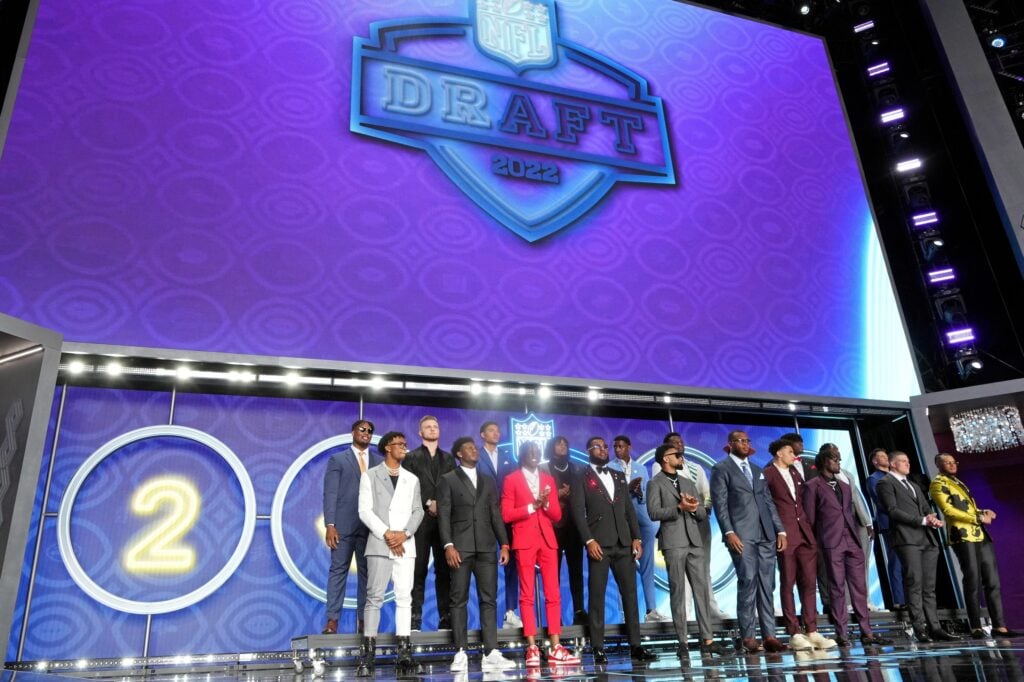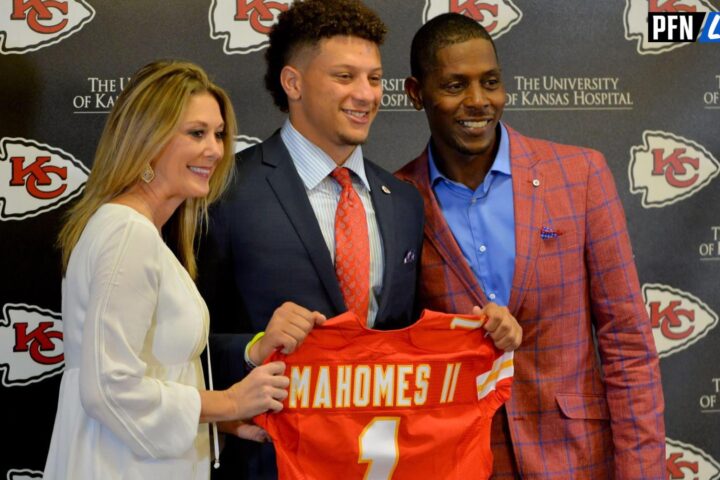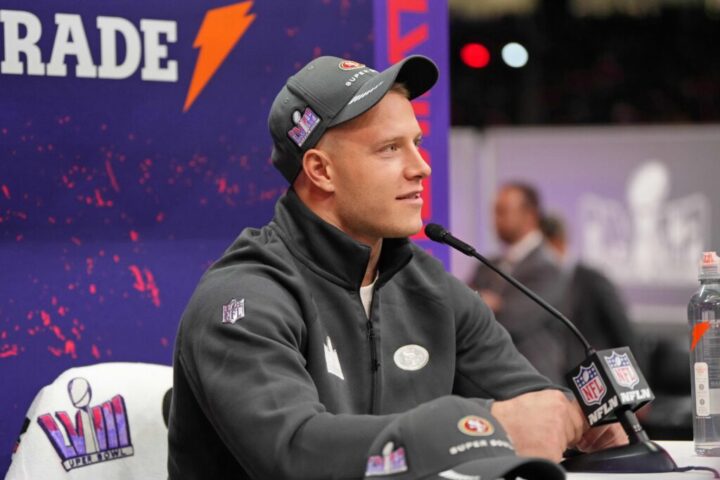The overwhelming majority of NFL Draft prospects were also college football players, but a few players made the leap to the pros without ever having played in the collegiate ranks. How do players become eligible for the NFL Draft, and which prospects entered the NFL without playing in college?
How Do Players Become Eligible for the NFL Draft?
Prospects do not need to have played college football to enter the NFL Draft. Instead, the only requirement to be eligible for the draft is to be three years removed from high school.
Top NFL Draft prospects often declare for the draft with college eligibility remaining. Players may leave school after their junior season or, in some cases, after their redshirt sophomore campaign. Players with remaining college eligibility require the NFL’s approval to enter the draft, but it’s almost always granted.
MORE: FREE Mock Draft Simulator With Trades
In 2004, Ohio State running back Maurice Clarett attempted to challenge the NFL’s draft eligibility rules. However, after an initial ruling in Clarett’s favor, an appeals court blocked Clarett, who had played one season for the Buckeyes before being dismissed from the team, from entering the draft.
USC sophomore wide receiver Mike Williams declared for the 2004 draft after the initial ruling declared Clarett was eligible. But Williams was also barred from the draft by the appeals court.
Williams was eventually selected 10th overall by the Detroit Lions in the 2005 draft, while Clarett fell to the third round, where the Denver Broncos chose him.
Top NFL Players Who Didn’t Play College Football
Antonio Gates
Antonio Gates originally enrolled at Michigan State University to play both football and basketball, but he transferred to Eastern Michigan University after realizing MSU head coach Nick Saban only wanted him to play football for the Spartans. Gates then spent time at the College of the Sequias before landing at Kent State in 2001.
Gates never ended up playing college football, but he earned honorable mention All-American honors in basketball after his senior season. The Los Angeles Chargers signed him as an undrafted free agent in 2004, and the rest is history. Gates made eight Pro Bowls, landed on the NFL 2000s All-Decade Team, and will likely be enshrined in Canton in the near future.
Jordan Mailata
An Australian native, Jordan Mailata never played a down of football until he reached the NFL. Pro teams were intrigued by the 6-foot-8, 365-pound rugby player’s size and athleticism, and the Philadelphia Eagles took a chance on him in the seventh round of the 2018 draft. Mailata became a full-time starter in 2020 and is now considered one of the best offensive tackles in the NFL.
Michael Lewis
Micahel Lewis played high school football as a freshman, but he quit in order to help his family and support his child that was born during his senior year. While working as a beer truck driver, Lewis began experiencing success as a flag football player and attempted to further his football dreams.
Lewis played for a number of minor league teams before eventually landing with the New Orleans Saints in 2000. After playing for NFL Europe in 2001, Lewis led the NFL in kickoff yards, punt return yards, and all-purpose yardage en route to first-team All-Pro honors. He stayed with the Saints through 2006 before ending his NFL career with the San Francisco 49ers in 2007.
Stephen Neal
Stephen Neal played football in high school but focused on wrestling in college, where he posted a 156-10 record and four All-American campaigns. The New England Patriots signed him as an undrafted free agent in 2001. Neal eventually made 81 starts at guard for the Patriots from 2002-2010, winning three Super Bowls in the process.
How Much Do Rookies Make in the NFL?
Each rookie will make a $750,000 base salary in 2023. That is the league minimum for NFL players with no experience, from the No. 1 overall pick all the way down to “Mr. Irrelevant” and hordes of undrafted free agents.
MORE: When Is the 2023 NFL Draft? Dates, Draft Order, Location, and More
The difference in compensation between rookies is highlighted by their signing bonuses. For example, the player selected first overall by the Carolina Panthers will collect a signing bonus of $26.5 million. A prospect chosen at the top of the fourth round will take home a $908,000 signing bonus, while the final pick of the draft will earn a bonus of just $84,000.




